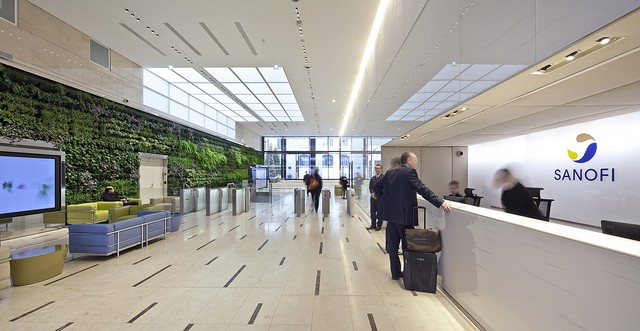
Sanofi Zika vaccine deal causes controversy
pharmafile | May 22, 2017 | News story | Sales and Marketing | Sanofi, US army, Zika
In a further twist to Sanofi’s deal with the US Army to develop a vaccine for the Zika virus, the medical humanitarian organisation Doctors without Borders (MSF) has appealed the decision to give Sanofi exclusive license for patents to the vaccine.
The case in the US has slowly been growing, gaining more coverage as the US Army and Sanofi have negotiated the licensing agreement for a vaccine that has been partially funded by the US tax payer. Sanofi has won $43 million of support for its R&D process, with a potential further $130 to be made available through further government funding.
The deal has been criticised most by Bernie Sanders, who take an opportunity to criticise the deal in a feature in The New York Times and, by doing so, drew massive public attention to the deal. It forced the US Army to attempt to negotiate a ‘fair price’ for US citizens for the vaccine, given that they had directly helped fund it, but the offer was rejected by Sanofi.
This could mean that US citizens pay high prices on the drug than other countries that were not involved in its development. It could also mean Sanofi has exclusive license to sell the potential product around the world, generating high profits if the drug development is successful.
As a result of this, the MSF have launched an appeal to the US Department of Defence on its decision to grant the exclusive license. In a statement, the group said: “MSF objects to the granting of an exclusive patent license on a U.S. government-funded invention to a single pharmaceutical company as well as to the lack of conditions to ensure the vaccine will be appropriately developed and made available and affordable to all patients and medical providers who administer vaccines in the U.S. and globally”.
The US Army is in a tricky position, as there is little interest for pharmaceutical companies to spend huge sums on developing a vaccine that may or may not work, and could potentially not be profitable if cases of the virus subside significantly. The compromise then ends up heavily in the pharmaceutical companies’ favour, as there is not the capacity to perform such extensive research on the government’s part. The controversy is sure to rumble on as the R&D progresses.
Ben Hargreaves
Related Content

Sanofi and Regeneron’s Dupixent receives CHMP recommendation for chronic spontaneous urticaria
Sanofi and Regeneron have received a positive opinion from the European Medicines Agency’s (EMA) Committee …

Sanofi’s treatment granted orphan designation for rare chronic inflammatory condition
The European Medicines Agency has granted orphan designation to Sanofi’s investigational Bruton’s tyrosine kinase (BTK) …

Sanofi completes acquisition of Vigil Neuroscience to early neurology pipeline
Sanofi has announced that it has finalised its acquisition of Vigil Neuroscience, a US-based biotechnology …






